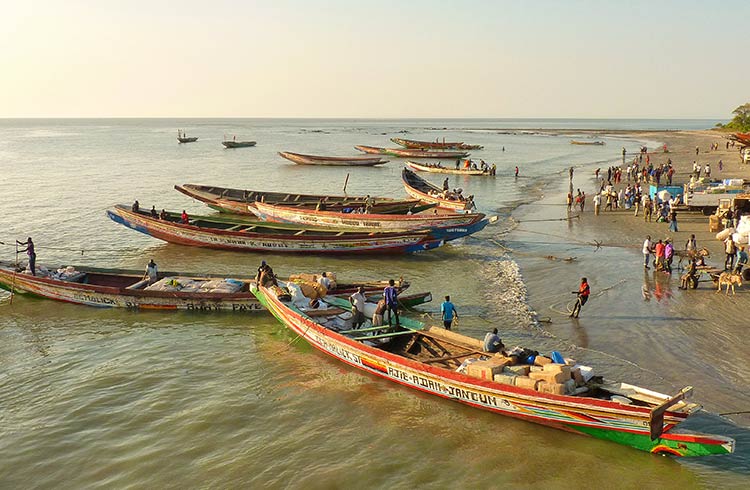Local Laws in The Gambia: How to Stay Out of Trouble
Laws apply to unexpected situations in The Gambia – from drugs and skin bleaching to specific medications and photography of buildings, this is what you need to know before you go.
 Photo © Getty Images/Bart Brouwer / EyeEm
Photo © Getty Images/Bart Brouwer / EyeEm
Gambia has strict laws that apply to travelers. Some may be unexpected, so find out how you can stay out of trouble with these tips from our travel safety expert.
Religious customs and laws
The Gambia is a predominantly Islamic country, and local laws and customs reflect this. You should be respectful of local traditions, customs, laws and religions at all times and be aware of your actions to ensure that they do not offend other cultures or religious beliefs, especially during the holy month of Ramadan or if you intend to visit religious areas.
Strict drug laws in The Gambia
The President of The Gambia has announced zero tolerance towards illegal and illicit drugs.
The Gambian authorities will take strong action against anyone importing, exporting or found in possession of drugs.
You should not accept packages on behalf of anyone without knowing the contents, common sense should always prevail.
The minimum sentence for those found in possession of drugs (over 250g) is a very large fine or up to 15 years in prison in default. Recent cases have included foreigners, carrying a minimal amount of cannabis, sentenced to ten years in prison.
Is The Gambia safe for LGBTQ+ travelers?
In May 2008, Gambian government leaders strongly condemned homosexuality and advocated for greatly increased penalties for anyone harbouring homosexuals. The Gambia's existing laws already criminalize homosexual sex acts, but current laws do not include the death penalty.
Violations of the laws against homosexual sex acts are occasionally pursued and Gambian citizens have been prosecuted under these laws. In June 2008, two tourists were detained but not charged under this section of the criminal code.
Importing and exporting laws
The Gambia has strict laws on the import and export of skin-bleaching creams and some medications. Visitors who arrive with substances containing 1% or more of: hydroquinone (in any form), hydrocortisone (unless in trace amounts and for specific purposes such anti-itch products), betamethasone, flucinonide, clobestatol, or clobestatone are subject to fines up to $2,000 and/or three years imprisonment.
Carry proof for prescription drugs
Airport police and customs officials routinely inspect incoming and outgoing luggage. Travelers in possession of prescription drugs should carry proof of their prescriptions, such as labelled containers or prescriptions.
Police have, on occasion, arrested foreigners carrying unlabelled pills. For a list of prohibited items, travelers should contact the nearest Gambian embassy or consulate.
Photography laws in The Gambia
It is against the law for tourists to photograph or film government buildings, including airports, military installations or embassies due to security concerns.
You should also ask permission before photographing locals.
Cash economy
The Gambia's currency, the dalasi, is freely convertible but is not widely available outside the country. The Gambia is a cash economy, and travelers should carry sufficient currency to cover all expenses for their visit.
Avoid changing money on the black market. A serious government crackdown on illegal moneychangers means that you don't only risk getting ripped off, but might also get into trouble with the police. If you've come in from Senegal and have no dalasi, CFA francs are widely accepted.
Simple and flexible travel insurance
You can buy at home or while traveling, and claim online from anywhere in the world. With 150+ adventure activities covered and 24/7 emergency assistance.
Get a quote
No Comments